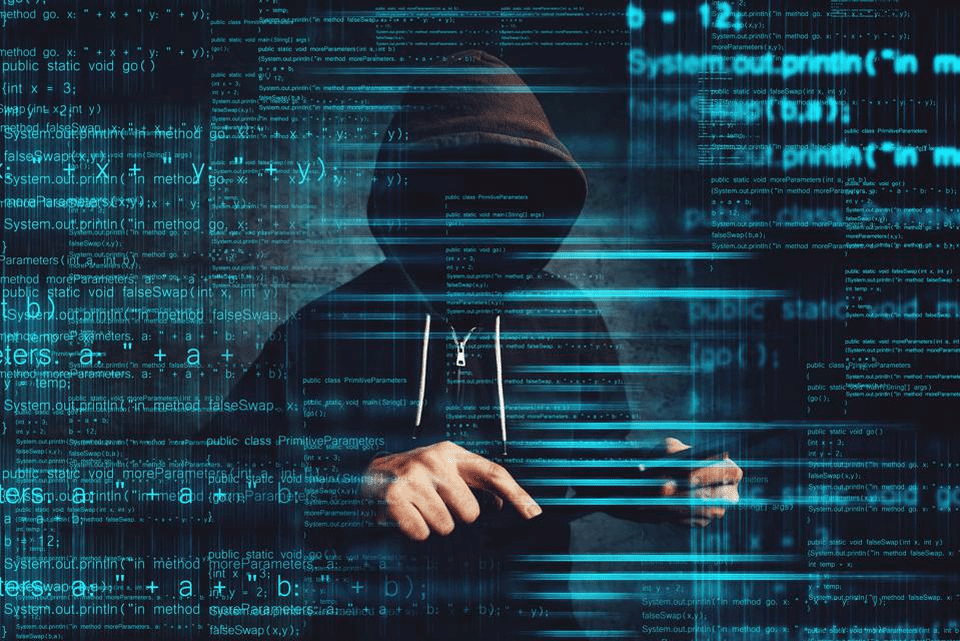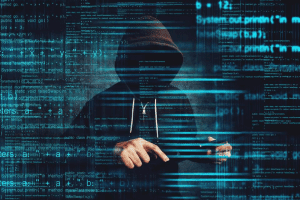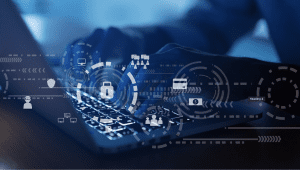In the dangerous realms of the cyber universe, how can one stay truly safe and secure? In our previous article, we covered some of the most significant types of cybercrimes, their purposes, and the methods that the majority of cybercriminals use. Now that we understand the threat cybercrimes represent and are aware of the variety of dangers, it is time for preparations. The question is, how? What precautions should we take in order to protect our computers and personal data against cybercrime? Here are 3 complete ways on how to protect yourself from cybercrime.
Increasing Public Awareness On How to Protect against Cybercrime
Even in 2020, a year that forced everyone to use the internet and computers for fulfilling the needs of their daily life, a large portion of the population is unaware of the dangers that can threaten their lives. People are not educated about cybercrimes and the way these scams work; therefore, they do not know how to prevent them. After all, as we mentioned before, most hackers use lies and manipulations in order to find their way into the computer systems of companies and individuals.
The sad truth is that many of these cybercriminals are not even experts or masterminds; yet, lack of awareness makes most people an easy target for anyone with a little knowledge of hacking. For instance, many people still tend to open a phishing email message and hence jeopardizing their private data. Human error is a leading cause of many cybercrimes and we must start increasing public awareness and educate them about different types of cybercrimes, the ways they are committed, and how we can prevent them from happening.
Taking Personal Precautions
There are certain precautions that every user should take while surfing on the internet; whether they are using their laptop, smartphone, or office computers. While these precautions are pretty simple and easy to follow, not regarding them can lead to regrettable outcomes.
Use strong passwords. The first step of securing your accounts is probably choosing a strong password. Try to choose a password that is not similar to your name, phone number, or date of birth which are obviously shared with everyone. It is recommended that the password you create would have at least 12 characters and be a mix of capital letters, lower-case letters, numbers, and symbols in order to become much harder to crack. Also, avoid using the same password for all of your accounts. This way, in case someone hacked your password in one website, they would not gain access to all of your accounts.
Avoid suspicious URLs. Always pay attention to the URL addresses you click on and check whether they look legitimate. Fake pages often look exactly like the main websites; so never forget to double-check their exact address carefully. Avoid clicking on links with unfamiliar or suspicious-looking URLs. Always double-check the URL before signing into your account, making transactions, or adding your personal data on a website. If your internet security product includes functionality to secure online transactions, do not forget to enable it before carrying out any financial transactions.
Never download or open file attachments from spam emails or unknown senders. Always check the senders’ email addresses before opening their message and more importantly, before downloading any attachments. Even if the sender’s name looks familiar and it seems like it was sent from a person you know, always double-check the email address to see if it matches with the real email address. One of the most common ways for viruses and malware to find their way into victims’ computers has always been through email attachments; so never open the attachments in messages from unknown senders or spam emails.
Never click on links in spam emails or untrusted websites.
Like email file attachments, always avoid clicking on links in spam emails, messages from unknown people, or even websites. Most of the links provided from suspicious websites contain malware and can threaten your online safety.
Never share your personal information unless you are absolutely sure about the security.
Whether it is on a website, email, or even over phone calls, never ever share your personal information unless you are absolutely sure about both the identity of that person and the security of the platform. Pretty much like how you do not share your information with just anyone in the streets, you should also avoid giving out your private data to unknown people and websites on the internet. Naturally, when it comes to more sensitive information such as passwords and security data, you just do not share anything with anyone, even if that person claims to be from a company’s security team.
Keep your software apps and operating systems updated.
Companies keep updating their software programs not just to add new features, but also to fix the holes and flaws in the security system of their apps. So keeping your software and more importantly, operating systems up to date, ensures that you benefit from the most recent security patches to protect your information.
Do not trust anyone who claims to be from a company or bank
Whenever you received an email message from a company, check their address and make sure it is the official email of that company rather than a scam. Even when someone calls your phone and claims that they are from a company, hang up; and then call the number on their official website to make sure that you are speaking to them, not a cybercriminal. You can even contact the company with a different phone since some cybercriminals can hold the line open.
Beware of public Wi-Fi risks.
The security of public Wi-Fi can leave you vulnerable to many different types of cybercrimes. In order to stay clear of potential cyber-attacks, it is recommended to use the most updated software and avoid using password-protected websites that contain personal information while you are on public Wi-Fi. Apart from these, another secure way is to use a Virtual Private Network (VPN). VPNs are designed to create a secure network in which all data sent over a Wi-Fi connection is encrypted.
Use Of Cyber Security
While preventing typical human errors can remove a high percentage of cybercrime possibility, having a fully secured computer or network requires the assistance of proper software; which brings us to Cyber Security.
Cyber Security, which is sometimes referred to with other names such as IT security or computer security, is the body of technologies and processes designed to protect computer systems, networks, and devices from the dangers of cybercrimes or damage to their hardware, software, or electronic data, as well as from the disruption or misdirection of the services they provide. In order to truly keep personal and business networks and devices safe from unauthorized accesses or malicious attacks, it is essential to use a number of different types of Cyber Security such as Antivirus Software, Internet Security, or Endpoint Security.
Anti-Viruses
The first big smart step in securing your computer and network devices is probably installing proper anti-virus software on them; whether it is a personal laptop or a work-related device. Antivirus software programs are designed to scan the data on computers in order to detect dangerous software, and then remove any threats before they start causing problems. Anti-Virus also scans incoming files and codes that are being passed through your network traffic. Having this protection in place helps you protect your computer and data against various types of cybercrimes. Just make sure to always keep your anti-virus software program updated so that you would benefit from the latest protection advances.
But how do they work?
How do these anti-virus programs detect malware? Well, the developers of antivirus software programs compile an extensive database of already known viruses, worms, and malware and then teach the software how to detect and remove them. So when different files, apps, and software programs are moving in and out of your system, the antivirus compares them with its database and tries to find matches. The files that are similar or identical to the database will be deleted. This is why keeping an antivirus program updated is important; cause many of these updates, add more data to the database of known malware and viruses.
Another interesting fact about antivirus software programs is that their settings are adjustable as they are programmed to work both automatically and manually. Almost every anti-virus program scans the computer for malicious files automatically but you can also have them do a manual scan as well. In manual scans, you can just sit and see in real-time which malicious files were found and neutralized. You can also choose whether the antivirus program should remove harmful files automatically or ask your permission before cleaning them. Antivirus software programs usually run in the background and check every file that is opened to prevent the system from becoming infected.
Internet Security
Internet Security is another type of Cyber Security that focuses on online threats on the World Wide Web. As we explained in our previous article, most cybercriminals break into people’s computers throughout the internet; and that makes the job of Internet Security even more significant. The objective of Internet Security is to establish rules and measures to use against attacks over the Internet to ensure the security of networks. In the process, internet security prevents attacks targeted at browsers, networks, operating systems, and other applications.
Many methods are used to protect the transfer of data, including encryption and from-the-ground-up engineering. Some of the most common and significant among them are Firewalls, Access Controls, Data Loss Prevention (DLP), Distributed Denial-of-Service Prevention, and Email Security.
As you already know, Email messages are where most cybercrimes occur; they just create doors for viruses, worms, Trojans, and other types of malware to enter computer systems. That is why establishing comprehensive and multi-layered email security for reducing exposure to emerging threats is essential. Apart from that, Email messages should get secured by using cryptography, such as signing an email, encrypting the body of an email message, and encrypting the communication between mail servers. Last but not least, having at least two factors of authentication by users for accessing email accounts and websites is a great security addition.
Another good method of securing networks is using a Firewall system. Firewalls act as filters that control access between networks and protect devices by allowing or denying access to a network. In other words, a Firewall, as its name suggests, is like a wall that keeps harmful files away and prevents malevolent codes from being embedded onto networks. Apart from that, Firewalls can also block dangerous traffic by screening network traffic.
How do they work?
Firewalls consist of various types of filters and gateways that impose restrictions in incoming and outgoing network packets to and from private networks. Any traffic that either enters or exits must pass through the firewall. With a specific set of rules that are designed into a Firewall for identifying dangerous malware, only authorized traffic would be able to pass through. Also, Firewalls create checkpoints between an internal private network and the public internet. Firewalls can also limit network exposure by hiding the internet network system and information from the public internet.
Endpoint Security
Endpoint Security refers to a software approach for ensuring that all the endpoint devices, or end-user devices, in a network maintain certain levels of safety and security. Endpoint devices are systems such as computers, smartphones, tablets, or even scanners that are connected to a network by the internet. All of which serve as points of access to an enterprise network, and create attack paths and points of entry that can be exploited by malicious files. Therefore, Endpoint Security aims to secure every endpoint and tries to make sure that these devices follow a definite level of compliance to standards in order to avoid potential threats.
Endpoint Security is especially effective and beneficial for companies, whether they are small local businesses or huge multinational corporations. In a company network, anything that employees use for communicating with one another and share data can be vulnerable. However, Endpoint Security helps us to identify and manage the users’ computer and data access over a corporate network. With Endpoint Security, the network administrator can restrict the use of sensitive data as well as certain website access to specific users, in order to maintain and comply with the policies and standards of the organization. In addition, encrypting data on endpoints and removable storage devices are very useful in preventing data leaks.
Worst Case Scenario
In the worst-case scenario when everything has failed and you become the victim of a cybercrime, noticing the data breach and reporting it quickly is very important. Keep an eye on your bank statements and check all of your account’s transactions. And companies should have regular checkups and use proper tools in order to spot occurred any cybercrime faster.











